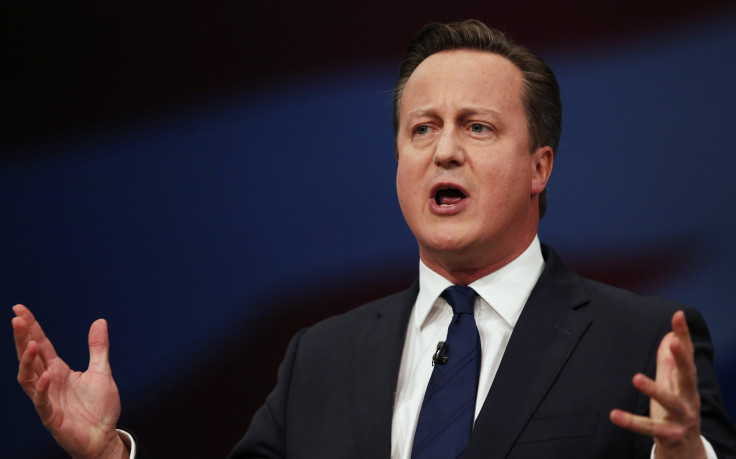David Cameron Seeks Support For Airstrikes Against ISIS In Syria As UK Shouldn't 'Subcontract' Its Defense

British Prime Minister David Cameron has called for support from all political parties to bomb Islamic State group targets in Syria, saying that the terrorist group is using the north of the country as a safe haven to launch attacks against Western targets, including the Nov. 13 Paris attacks that left 130 dead.
Responding to the foreign affairs committee, Cameron said in a speech delivered to the House of Commons Thursday: “The threats to our interests and to our people are such that we cannot afford to stand aside and not to act. Throughout Britain’s history we have been called on time and again to make the hardest of decisions in defense of our citizens and our country. Today one of the greatest threats we face to our security is the threat from ISIL [ISIS].”
Cameron said it was wrong to "subcontract" the defense of Britain to other countries as he made the case for the Royal Air Force (RAF) to join air forces from France and the U.S. in bombing targets in northern Syria. “The longer Isil is allowed to grow in Syria, the greater the threat it will pose. It is wrong for the United Kingdom to subcontract its security to other countries, and to expect the aircrews of other nations to carry the burdens and the risks of striking Isil in Syria to stop terrorism here in Britain.”
On Wednesday, President Barack Obama said the U.S. was among a group of 65 countries pushing back against the Islamic State, from places as far-flung as Australia and Southeast Asia, adding that Russia -- which say one of its fighter planes was shot down by Turkey this week -- is part of "a coalition of two" with Iran, supporting the regime of Syrian President Bashar Assad.
Back in August 2013, the U.K. parliament voted on military action in Syria after it was confirmed there was use of chemical weapons in the country but the members of parliament (MPs) rejected the government's motion. However, in July this year, the public discovered that despite the no vote by MPs, at least three Royal Navy pilots had been killing ISIS fighters in Syria, leading to claims that minister had been deceiving the public.
Cameron promised to only hold a vote when a majority exists for military action as he did not want to "hand a publicity coup to Isil."
Seven ISIS Terror Plots Foiled
To hammer home his point about the threat posed by the extremist group, Cameron revealed that all seven terrorist plots foiled in 2015 by the U.K. intelligence apparatus were being planned by ISIS or those inspired by its propaganda. Cameron also claimed that ISIS has an external operations group dedicated to carrying out attacks on foreign soil such as the one in Paris on the night of Nov. 13.
While a 36-page written response to the foreign affairs committee suggested that sending in ground troops would be part of any military action against ISIS in Syria, Cameron denied any plans to do so in his speech on Thursday: "We are not deploying British combat forces, we are not going to deploy British combat forces."
Cameron also addressed concerns about what would happen post-conflict in Syria, admitting that "terrible mistakes" were made in the wake of the Iraq war. He added that he would be pledging 1 billion pounds ($1.5 billion) to rebuild the country.
Opposition
Labour Party leader Jeremy Corbyn, meanwhile, questioned the legality of taking such actions in relation to United Nations security resolution 2249. "Does [the resolution] give clear and unambiguous authorization for UK air strikes?" Cameron responded by saying he believes the resolution is unambiguous in this point. "The language of this resolution is very clear and that is why I quoted it in some detail."
Corbyn also questioned the issue of civilian casualties in Syria, but Cameron believes that the weapons used by the U.K. would be accurate as to reduce the number of collateral deaths. The Telegraph reported that the weapons in question are Brimstone missiles, which feature "a precise dual-mode guidance system is more sophisticated than that used in the American Hellfire missile and makes it the perfect weapon for destroying moving ISIS gun trucks, while minimizing death among bystanders."
Reacting to the speech by Cameron, the Scottish National Party leader Angus Robertson said his party's representatives -- which number 56 -- would not be voting to support Cameron's call for airstrikes. However, one leading skeptic of the use of air strikes in Syria, Crispin Blunt, the chair of the Commons Foreign Affairs Committee, has come out in favor of airstrikes despite previously raising concerns.
© Copyright IBTimes 2025. All rights reserved.






















